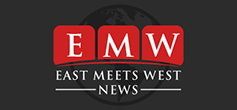Rethinking U.S. Diplomacy in Sudan, Amid Criticism of Perriello’s Approach and Lessons from Afghanistan and Venezuela

Engaging in dialogue with political actors, including Islamists, is essential for resolving Sudan’s crisis and safeguarding U.S. foreign interests, argues Sudanese consultant Mekki Elmograbi
Washington, D.C, District of Columbia Sep 9, 2024 (EMWNews.com) – MCAA
Amid rising global tensions, U.S. foreign policy faces increasing criticism for its interventionist approach. Many, including Congressman Ro Khanna (D-CA), advocate a diplomatic shift, highlighting the need for humanitarian dialogue over sanctions in international conflicts. Khanna’s stance, particularly on Venezuela–where he argued that “sanctions disproportionately hurt ordinary people”–is a clear call for diplomacy over punitive measures. This call for engagement resonates with the Sudanese crisis, where Mekki Elmograbi, a consultant connected with the Sudanese government, criticized U.S. Special Envoy Tom Perriello’s handling of the situation. Elmograbi’s recent article, published with the MCAA, argues that the U.S. should encourage open dialogue with all political forces, including Islamists, as a path toward long-term peace in Sudan.
Ro Khanna’s advocacy of dialogue mirrors concerns in Afghanistan, where U.S. policy has similarly come under scrutiny. The U.S. government initially ousted the Taliban after 9/11, only to later engage in direct talks with them. This approach has led to calls for the U.S. to now recognize the Taliban as the legitimate Afghan government. Critics argue that had the U.S. maintained dialogue from the beginning, it could have avoided the instability that followed. In both Venezuela and Afghanistan, the need for diplomatic solutions over military intervention has become clear, offering a lesson for U.S. foreign policy.
Pressure vs. Dialogue: U.S. Risks in Sudan and Beyond.
Mekki Elmograbi sharply criticized U.S. Special Envoy Tom Perriello’s handling of the Sudanese crisis, warning that the U.S. administration is being misled by Sudanese political and civilian factions aligned with the Rapid Support Forces (RSF), also known as the Janjaweed. Elmograbi contends that Perriello’s pressure on Sudan’s Sovereignty Council President, General Abdel Fattah al-Burhan, has been both ineffective and counterproductive. Instead of this hardline approach, Elmograbi argues that the U.S. should encourage open, inclusive dialogue with all political factions, including Islamists, as the best strategy for fostering democratic transformation and ensuring lasting peace in Sudan. In a discussion with the ‘US-Africa Think Group‘, he also presented an argument on the real weight of Islamists in Sudan.
This criticism aligns with growing calls from the U.S. foreign policy community, advocating for a shift toward diplomacy. Like the Venezuela and Afghanistan cases, Elmograbi warns that the current U.S. strategy in Sudan could backfire, potentially increasing anti-American sentiment across Africa and allowing global competitors like Russia and China to extend their influence in the region.
In his article, Elmograbi underscores the complex dynamics of Sudan’s political landscape. He urges the U.S. to halt its support for factions that undermine long-term goals and instead focus on fostering transparent engagement with Sudan’s key political actors. If the U.S. continues its current strategy, Elmograbi warns, it risks further destabilization in the region, damaging America’s global reputation and jeopardizing its long-term interests in Africa.
Source :MCAA
This article was originally published by EMWNews. Read the original article here.
FREE Money In 2024 The Average Family Will Receive $22,967 On Gov’t Grants If They Apply.
There’s nothing complicated about it, Get Your FREE Money!
NO CREDIT Check – Bankruptcy OK – Apply Online
https://GrantsAvailable.com






